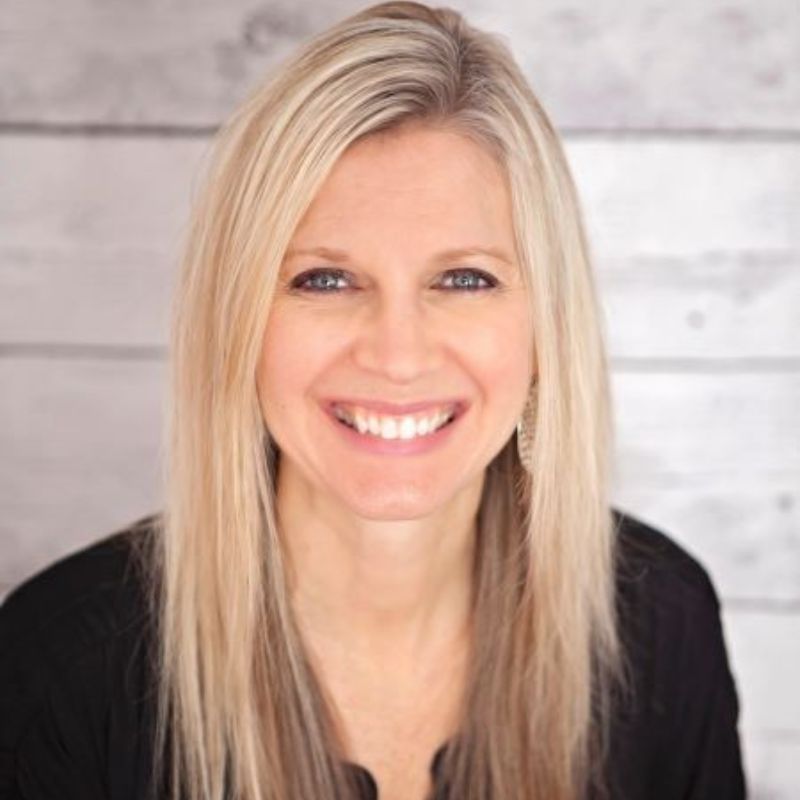
As parents, we spend years guiding and nurturing our children, but our roles shift in ways we couldn't have imagined when they become adults. No longer nearby for daily advice or comfort, we're left with a mix of pride, concern, and, sometimes, helplessness. We watch them face struggles we can't fix and make decisions we can't control. In these moments, I've found that prayer becomes more than just a routine — it's a lifeline, a way to release worry and entrust my grown children to God's care. You're not alone if you've felt the weight of loving and praying for your adult children.
As my children have grown into adults, I've learned that parenting shifts from guiding and teaching them up close to learning a new language of love — a language spoken in prayer, surrender, and trust. This season of parenthood doesn't mean releasing my love for them; it means finding fresh ways to hold them close in prayer. In this journey, I've discovered how to leave a legacy of faith for my grown children, even as I navigate my uncertainties. Here, I'll share how this prayer approach has shaped my heart and my family.
Photo Credit: ©Getty Images/Thomas Barwick

1. Letting Go of "Prayer Perfectionism"
One of the most freeing realizations in my prayer journey has been the need to let go of what I call 'prayer perfectionism.' This is the belief that we need just the right words, the perfect setting, or even a 'holy language' to make our prayers effective. Many of us have images of pastors or prayer warriors we admire, and we feel our words could never compare. But over time, I've learned that God doesn't need our polished, perfect words; He needs our honest, willing hearts.
So, when I go to God for my children, I go as I am. I've released my ideal of a "perfect prayer" and leaned into the faith that God sees beyond my words and knows my heart for my children, just as He knows each of their hearts. My prayers for them aren't about performance; they are a form of love and trust. I know God's love for them is bigger than anything I could ever say or ask.
Photo Credit: ©Unsplash/Ben White

2. Creating a Tangible Legacy of Prayer
A few years ago, I began a project that I hoped would be a lasting reminder of my prayers for each of my children. I started by writing out scriptures that spoke specifically to each of them and their unique needs. I prayed for peace and trust for the child struggling with anxiety, for purpose and guidance for the one wrestling with direction, and for wisdom and strength for my husband.
I wanted these prayers to be more than just my private practice, so I decided to create a visible reminder they could be kept close. I printed each child's list of scriptures, placed their name at the top, and framed it as a Christmas gift. On Christmas morning, they opened these frames—a reminder of the verses I had been praying over them, each one chosen with intention and love.
Some of my daughters have kept these frames on their dressers, and I'm grateful knowing they can look at them daily, reminded of God's promises for them. These framed verses represent more than a prayer practice; they are a legacy of faith, a commitment I carry for them. They will always know that their mom prays for them daily, even when we aren't together, and that God's promises are steadfast over their lives.
Photo Credit: ©Getty Images/shuang paul wang

3. Prayer as an Act of Surrender
In praying for my children, I've learned that true prayer involves deep surrender. It's not only about asking for what I want for them but also about trusting God's plans for their lives. As a mom, it's easy to want to shield our kids from pain or guide their choices, but as they grow, I'm continually reminded that God's ways are higher than mine. Surrendering them to His care means believing that His plan is good—even if it looks different from what I imagined.
I won't pretend that surrendering is easy. It's not. There are countless moments when I feel at a loss for what to pray, especially with the challenges they face in today's world. Anxiety, identity issues, career pressures — these battles are real, and often, my heart aches knowing I can't solve them. In those moments, I simply show up to God in prayer, asking Him to meet my children where they are, with whatever they need. Showing up in all my imperfections becomes a powerful act of faith. And over time, I've learned that my prayers aren't just words — they're a lifeline of hope and trust.
Photo Credit: ©Getty Images/Jacob Wackerhausen

4. 3 Practical Ways to Build a Prayer Habit for Adult Children
If you're wondering how to start building a legacy of prayer for your adult children, here are a few simple practices that have helped me make prayer a constant part of my life:
1. Scripture-Packed Notes
If framing verses isn't practical, you can still create small, personalized notes with Bible verses for each child. I've found that placing these notes in visible areas — on my mirror, Bible, or journal — helps me focus on God's promises for them. It's a small step, but it keeps my prayers rooted in God's Word, which I find incredibly comforting when my words fall short.
2. "Prayer Habit Stacking"
I think of this as "prayer habit-stacking," where I attach prayer to regular activities. When washing dishes, I might pray for each child as I think about them. When I brush my teeth in the morning, I pray for their safety, health, or current challenges. I even pray as I fold their clothes or tidy up their rooms. These daily routines become reminders to lift them up, turning ordinary activities into moments of intercession.
3. Three-Word Prayers
Sometimes, all I can muster is a quick, three-word prayer like "God, protect him" or "God, guide her." These short, powerful prayers are my lifeline when I don't know what to say. The simplicity keeps me centered on God's power, knowing He hears my heart even if my words are brief.
Photo Credit: ©GettyImages/fizkes

5. The Power of Prayer as a Lasting Gift
Leaving a legacy of prayer for my adult children isn't just something I do for them; it has changed me, too. Praying for them has taught me to trust more, to hope in God's promises, and to remember that He is present, especially in the uncertainties. Prayer helps me lean on God's strength and recognize His hand in my children's lives, even when I can't see all the answers.
If you're a parent who struggles to find the words to pray, I've created a free resource called When You Can't Pray. It's a simple guide for those overwhelming moments when prayer seems impossible. The guide will help you remember that God doesn't need perfect prayers — He needs our hearts. You can download it here.
In this season of life, as I watch my children step out on their own journeys, I hope to leave them with a legacy of prayer that speaks of God's faithfulness and love long after I'm gone. My prayer is that you, too, find comfort in this process. Peace comes from lifting our children to God, trusting He is with them every step and season.
If you’d like to go deeper into this topic, you’ll enjoy Rachel’s book, Desperate Prayers: Embracing the Power of Prayer in Life’s Darkest Moments.
Related Resource: For Those Battling Loneliness or Who Long for Deeper Connections
Do you find yourself battling loneliness and longing for deeper connections? Do you struggle to go deeper in your current relationships and wonder why tension often invades certain interactions? In this episode, host Carol McCracken talks with author and Bible teacher Becky Harling about our longing to connect, things that can hinder our connections, and practical ways we can build deeper relationships. If this episode helps you face fear with God's confidence, be sure to subscribe to Faith Over Fear on Apple or Spotify so you get new episodes every week!
Photo Credit: © Getty Images/Simon Lehmann

Originally published Wednesday, 13 November 2024.
